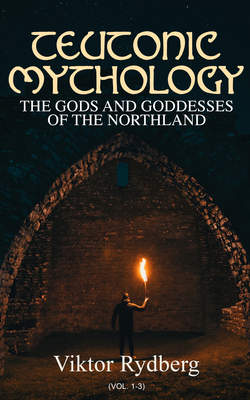Читать книгу Teutonic Mythology: The Gods and Goddesses of the Northland (Vol. 1-3) - Viktor Rydberg - Страница 51
На сайте Литреса книга снята с продажи.
ОглавлениеOne dark point remains, however. Why have the Vans objected to the killing of Gulveig-Heid? Should this clan of gods, celebrated in song as benevolent, useful, and pure, be kindly disposed toward the evil and corrupting arts of witchcraft? This cannot have been the meaning of the myth. As shall be shown, the evil plans of Gulveig-Heid have particularly been directed against those very Vana-gods who in the council demand compensation for her death. In this regard Saxo has in perfect faithfulness toward his mythic source represented Odin on the one hand, and his opponents among the gods on the other, as alike hostile to the black art. Odin, who on one occasion and under peculiar circumstances, which I shall discuss in connection with the Balder myth, was guilty of the practise of sorcery, is nevertheless the declared enemy of witchcraft, and Saxo makes him take pains to forbid and persecute it. The Vans likewise look upon it with horror, and it is this horror which adds strength to their words when they attack and depose Odin, because he has himself practised that for which he has punished Gulveig.
The explanation of the fact is, as shall be shown below, that Frey, on account of a passion of which he is the victim (probably through sorcery), was driven to marry the giant maid Gerd, whose kin in that way became friends of the Vans. Frey is obliged to demand satisfaction for a murder perpetrated on a kinswoman of his wife. The kinship of blood demands its sacred right, and according to Teutonic ideas of law, the Vans must act as they do regardless of the moral character of Gulveig.
